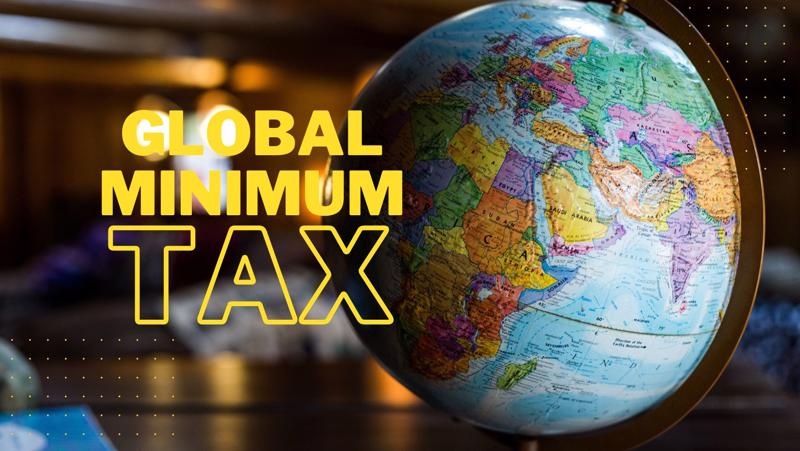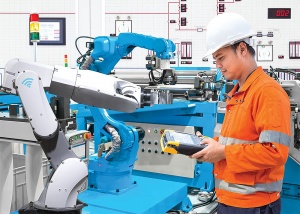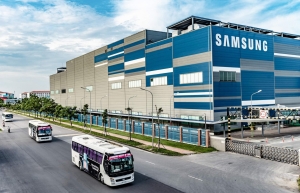Vietnam will remain FDI magnet with global minimum tax in place
 |
The global minimum tax (GMT) is an agreement that was reached by G7 countries in June 2021 to combat multinational corporations shifting profits to countries with lower tax rates. It will come into effect on January 1, 2024, with the participation of 141 countries.
Under the resolution, multinationals with total consolidated revenues of €750 million (about $800 million) or more within two of four consecutive years will be subject to a minimum tax rate of 15 per cent.
KB Securities Vietnam (KBSV) feels that the new mechanism raises concerns about reducing Vietnam's attractiveness to foreign investment, as tax exemptions or reductions are a key factor in attracting FDI flows.
It believes applying the GMT is necessary in the current context, but Vietnam should also consider adopting other supportive policies in addition to improving the business environment in terms of labour, infrastructure, administrative procedures, and more.
The National Assembly continues to meet to discuss appropriate policies, and it is likely that these will be introduced in the foreseeable future.
Moving forward, Vietnam should remain an attractive destination for FDI, given its low-cost labour, favourable geographical location, free trade agreements, and a stable political system. Accordingly, FDI inflows into Vietnam should further support economic growth in the coming years, and will also act as a growth driver for industrial park developers, according to KBSV.
According to a report by Maybank Vietnam, foreign investments may cool next year, with a 15 per cent effective corporate tax rate imposed from January 1 as part of the GMT reform. About 122 foreign companies will face a significant increase in their tax bill, with a large amount shouldered by Samsung.
The estimated additional revenue of VND14.6 trillion ($601 million) annually could be used to bolster other investment incentives, but there remain concerns around the violation of global rules and legal complications with companies that do not qualify.
A draft plan published by the Ministry of Investment in August proposed that only high-tech companies with at least VND12 trillion ($495 million) of investment should benefit from cash subsidies to cover other costs, including training, research, and infrastructure. The exact measures will only be finalised next year.
FDI has maintained its increasing momentum and stands as a bright spot as international investment and trade decline, showing the confidence of foreign investors in the Vietnamese market.
Realised FDI from January to November rose by 2.9 per cent from a year ago to hit $20.3 billion, which marks a five-year-high. FDI registrations surged by 14.8 per cent on-year over the first 11 months, with a 40 per cent hike in the manufacturing sector.
 | Both FDI inflows and disbursement raising Over the first ten months, total foreign direct investment (FDI) inflows and disbursement reported an increase of 14.7 per cent and 2.4 per cent, respectively. |
 | Samsung cements status as premier foreign investor in Vietnam In a meeting with Vietnamese Prime Minister Pham Minh Chinh on October 31, Park Hark Kyu, president and CFO of Samsung Group, highlighted Vietnam as an essential global economic player, expressing the company's intention to maintain its position as the largest foreign-invested enterprise (FIE) in Vietnam for some time. |
| Shining as a beacon for investment in years to come Will Vietnam remain a shining investment story? This question continues to be asked, even two years after the challenges of the pandemic and the economic volatility that we have all lived with this year. |
What the stars mean:
★ Poor ★ ★ Promising ★★★ Good ★★★★ Very good ★★★★★ Exceptional
 Tag:
Tag:
Related Contents
Latest News
More News
- SK Innovation-led consortium wins $2.3 billion LNG project in Nghe An (February 25, 2026 | 07:56)
- THACO opens $70 million manufacturing complex in Danang (February 25, 2026 | 07:54)
- Phu Quoc International Airport expansion approved to meet rising demand (February 24, 2026 | 10:00)
- Bac Giang International Logistics Centre faces land clearance barrier (February 24, 2026 | 08:00)
- Bright prospects abound in European investment (February 19, 2026 | 20:27)
- Internal strengths attest to commitment to progress (February 19, 2026 | 20:13)
- Vietnam, New Zealand seek level-up in ties (February 19, 2026 | 18:06)
- Untapped potential in relations with Indonesia (February 19, 2026 | 17:56)
- German strengths match Vietnamese aspirations (February 19, 2026 | 17:40)
- Kim Long Motor and AOJ Suzhou enter strategic partnership (February 16, 2026 | 13:27)






















 Mobile Version
Mobile Version